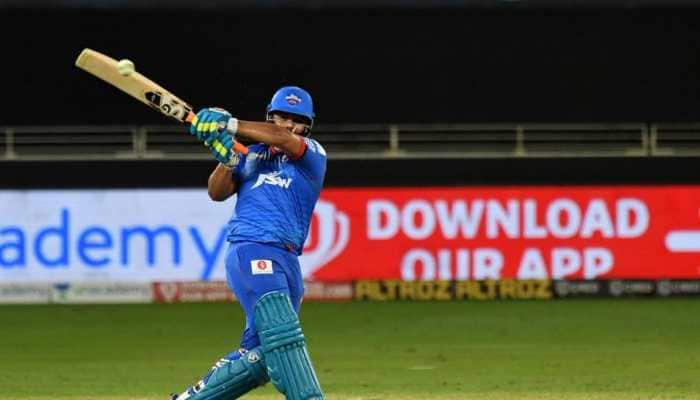Over 2 lakh beneficiaries given COVID-19 vaccine so far; 447 cases of adverse effect reported: Centre
On Day two of the nationwide vaccination drive, the Health Ministry said that out of the 447 adverse events following immunisation, three required hospitalisations.
- On Day two of the nationwide vaccination drive, the Health Ministry said that out of the 447 adverse events following immunisation, three required hospitalisations.
- On Sunday, six states carried out the vaccination drive.
Trending Photos
A total of 2,24,301 beneficiaries have been inoculated with COVID-19 vaccine so far, out of which only 447 adverse events following immunisation (AEFI) were reported, the Union Health Ministry said on day two of the nationwide vaccination drive on Sunday. Addressing a press briefing, the Health Ministry's Additional Secretary Manohar Agnani said out of the 447 adverse events following immunisation, only three required hospitalisations.
READ | Mahesh Sharma, first MP to take COVID-19 vaccine jab, feeling fine after 24 hours
"Today being Sunday, only six states conducted vaccination drive and in 553 sessions a total of 17,072 beneficiaries were vaccinated," he said. The six states where the vaccination drive was carried out on Sunday are Andhra Pradesh (308 sessions), Arunachal Pradesh (14 sessions), Karnataka (64 sessions), Kerala (one session), Manipur (one session) and Tamil Nadu (165 sessions), he said.
Agnani said a total of 2,24,301 beneficiaries have been vaccinated till January 17 as per provisional reports, adding that 2,07,229 of them received the jabs on day one of the drives. The number of people vaccinated in the country on day one of the drive is the highest in the world. "It is higher than (the numbers in) the US, UK and France on day one," he said.
READ | Nepal requests early provision of COVID-19 vaccines, India assures priority
"A total of 447 AEFI have been reported on January 16 and 17, out of which only three required hospitalisations. Most of the AEFI reported so far are minor like fever, headache, nausea," he said. Agnani said that of the three people hospitalised post-vaccination, two have been discharged from the Northern Railway Hospital and AIIMS in Delhi and one is under observation in AIIMS Rishikesh and is doing fine.
Agnani said an adverse event following immunisation (AEFI) is an unexpected medical occurrence which follows immunisation and it may or may not be related to the vaccine or vaccination process. Noting that only a few AEFI cases may require hospitalisation which are classified under serious AEFI, Agnani said protocols are in place for reporting, immediate case management at vaccination session site, transportation and hospitalisation and further care of such cases.
"Protocols are also in place for systematic investigation and causality assessment of serious AEFI (cases)," he said. Agnani said a meeting was held with all states and union territories on Sunday to review the progress of the drive, identify bottlenecks and plan corrective actions.
Agnani said states and UTs were advised to plan COVID-19 vaccination sessions four days in a week to minimise disruption of routine health services and some states have already publicised their weekly vaccination days. He said the vaccination drive will be carried out six days a week in Andhra Pradesh and five days a week in Mizoram.
The drive will be carried out four days a week in Arunachal Pradesh, Assam, Bihar, Chandigarh, Chhattisgarh, Dadra and Nagar Haveli, Daman and Diu, Delhi, Gujarat, Haryana, Jammu and Kashmir, Jharkhand, Karnataka, Kerala, Ladakh, Madhya Pradesh, Maharashtra, Manipur, Puducherry, Punjab, Rajasthan, Sikkim, Tamil Nadu, Telangana, Tripura, Uttarakhand and West Bengal. It will be carried out three days a week in Andaman and Nicobar Islands, Nagaland and Odisha, and two days a week in Goa, Uttar Pradesh and Himachal Pradesh.
Prime Minister Narendra Modi rolled out the world's largest inoculation drive against COVID-19 on Saturday and said the two vaccines being deployed will ensure a "decisive victory" for India against the pandemic. India has approved two vaccines -- Covaxin developed by Bharat Biotech and Covishield from the Oxford/AstraZeneca stable being manufactured by the Serum Institute of India -- for emergency use in the country.
According to the government, the shots will be offered first to an estimated one crore healthcare workers and around two crore frontline workers, and then to persons above 50 years of age, followed by persons younger than 50 years of age with associated comorbidities.
with additional inputs from news agency PTI
Stay informed on all the latest news, real-time breaking news updates, and follow all the important headlines in india news and world News on Zee News.
Live Tv







)
)
)
)
)
)
)
)
)
)
